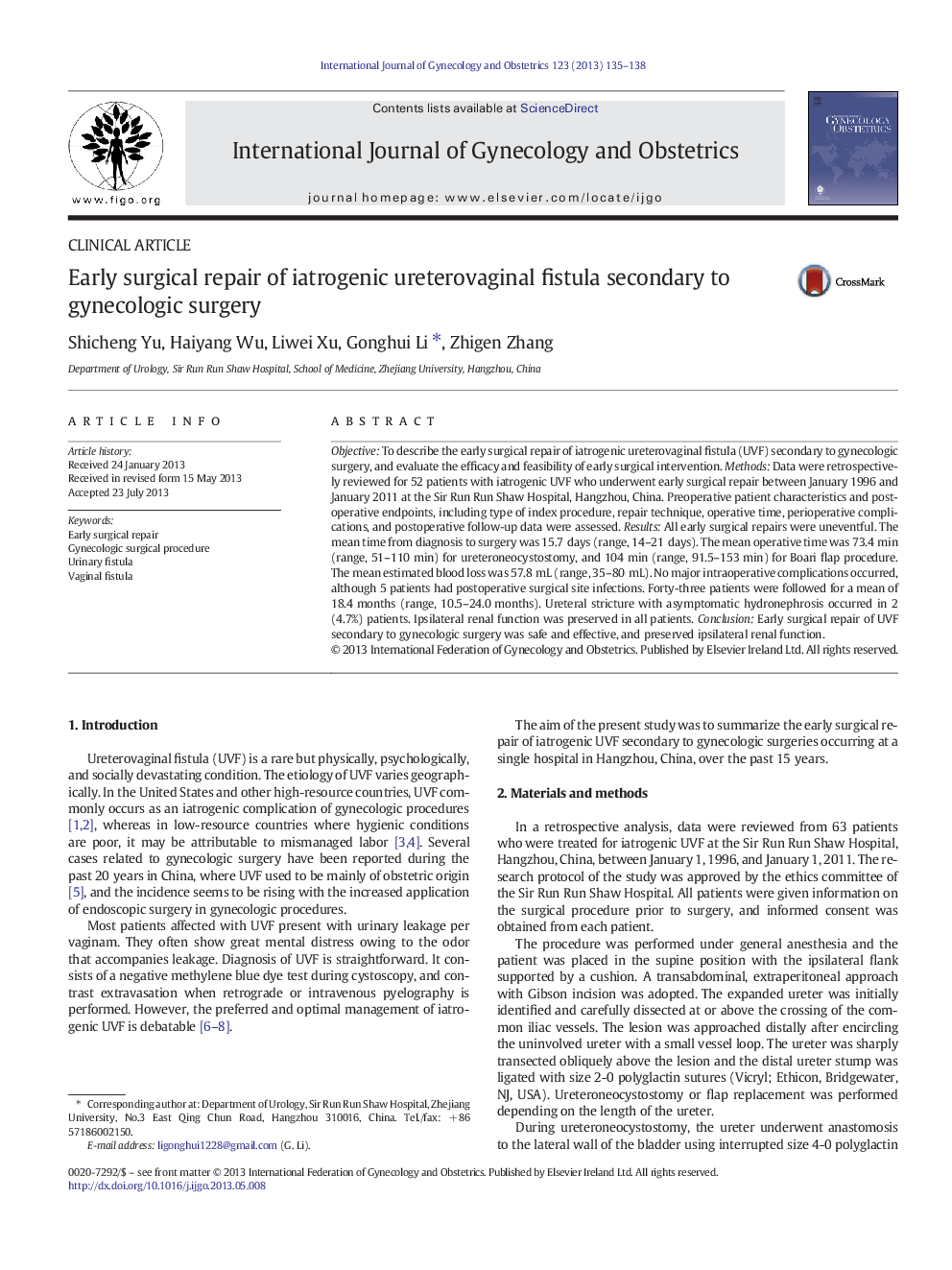| Article ID | Journal | Published Year | Pages | File Type |
|---|---|---|---|---|
| 3951000 | International Journal of Gynecology & Obstetrics | 2013 | 4 Pages |
ObjectiveTo describe the early surgical repair of iatrogenic ureterovaginal fistula (UVF) secondary to gynecologic surgery, and evaluate the efficacy and feasibility of early surgical intervention.MethodsData were retrospectively reviewed for 52 patients with iatrogenic UVF who underwent early surgical repair between January 1996 and January 2011 at the Sir Run Run Shaw Hospital, Hangzhou, China. Preoperative patient characteristics and postoperative endpoints, including type of index procedure, repair technique, operative time, perioperative complications, and postoperative follow-up data were assessed.ResultsAll early surgical repairs were uneventful. The mean time from diagnosis to surgery was 15.7 days (range, 14–21 days). The mean operative time was 73.4 min (range, 51–110 min) for ureteroneocystostomy, and 104 min (range, 91.5–153 min) for Boari flap procedure. The mean estimated blood loss was 57.8 mL (range, 35–80 mL). No major intraoperative complications occurred, although 5 patients had postoperative surgical site infections. Forty-three patients were followed for a mean of 18.4 months (range, 10.5–24.0 months). Ureteral stricture with asymptomatic hydronephrosis occurred in 2 (4.7%) patients. Ipsilateral renal function was preserved in all patients.ConclusionEarly surgical repair of UVF secondary to gynecologic surgery was safe and effective, and preserved ipsilateral renal function.
